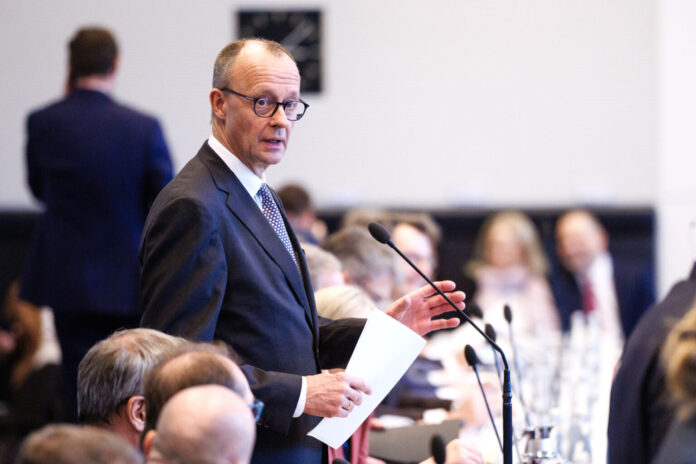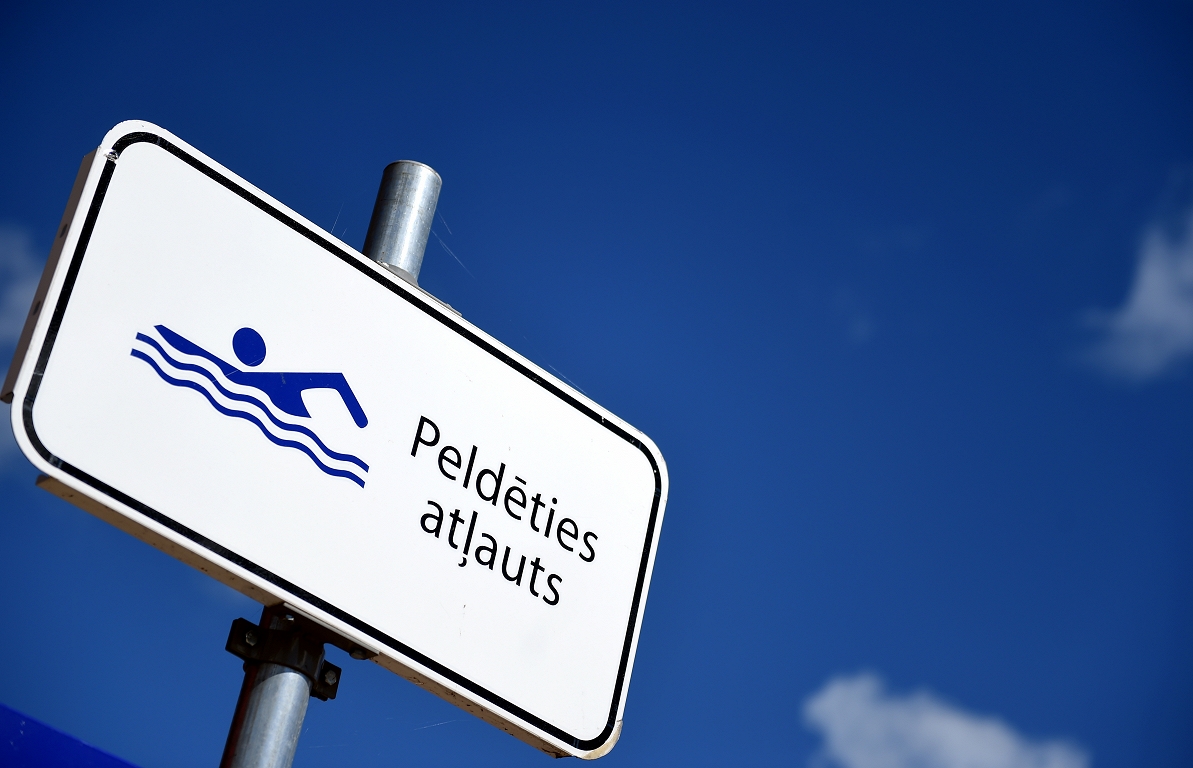Meet Friedrich Merz – the most powerful European leader

After winning the German election, the conservative leader must maneuver in a new era without Washington as a close ally
Friedrich Merz will become Germany's « most popular Chancellor ». In history, the head of the German government had no greater affinity for the United States. Mertz, according to his own records, has traveled to the United States more than 100 times and has seen former US President Ronald Reagan one of his political idols.
Merz, whose conservative alliance wins national elections with 29 % of the vote, according to early projections, especially likes a regan joke that summarizes the skepticism (in American style) of the German leader for state intervention: « The nine most terrible words in English are: 'I am from the government and I am in the government' and I am in the government. help). «
But just as Mertz is on the verge of taking power in Germany, his Mila America has become an irreplaceable, a not -so -honest friend with whom there are some disagreements. Merz and other European mainstream leaders are increasingly seeing the United States not as an example, but as another force that will set their already fragile democracies.
« This is really a change in an era, » Merz said at the Munich Security Conference, after US Vice President Jay Di Vance gave a speech describing European centrist parties, not Russia or China, as the biggest threat to European security.
« If we do not hear the call for waking up now, it may be too late for the whole European Union, » Mertz added.
The appearance of Vance in Munich is likely to enter European history as an epochal change, as important as Vladimir Putin's speech in 2007 at the same conference, when the Russian president practically declared war on the liberal US -led liberal order. Now, the US administration itself is the one that turns its back on that consensus.
German leaders, including Mertz, were particularly slow in accepting the new reality, saying until recently that the Transatlantic Alliance would survive despite clear signals from the Trump administration that it would end military aid to Ukraine, questioning the US commitment to defending Europe.
For the awakened transatlanticist Merz, there could hardly be a rougher awakening. The question that defines his mandate will be whether he can lead Germany and Europe to defend the disintegrated liberal order without the United States – or, as Merz suggested in Munich, is already almost too late.
Rise, drop and re -rise of Merz
Mertz did not imagine his long -awaited victory. Born one decade after the end of World War II in Sauerland, a rural, mountainous region in West Germany, Mertz, according to him, was far from a spectacular student and prone to disciplinary problems. Despite the rebel period, it was influenced by the deeply built conservative culture of the area and joined the central-right Christian Democratic Union while still in high school. After serving a short period in the military, Mertz went to Bonn University, then the capital of West Germany, where he studied law.
Merz became a conservative member of the European Parliament in 1989, the year the Berlin Wall fell. Five years later he was elected to the German Bundestag, where he developed close relations with Wolfgang Schaeuble, the CDU solid man and a strong representative for integration into the European Union. Under the mentorship of Schaeuble, Merz rose and was considered a probable choice as a candidate for chancellor. However, his rise ended in 2002, when he lost the fight for power with more centrist Angela Merkel.
Not seeing any role for himself in the CDU under Merkel, Mertz withdrew in the background and in the midst of the 2008 global financial crisis, published a text about free markets entitled « Dares for Greater Capitalism ». A year later, he left the Bundestag to work as a corporate lawyer, while taking over the helm of Atlantic-Bruce, a lobby that advocates transatlantic ties.
While with Atlantic-Brike, Merz advocated a trade agreement between the EU and the United States-a transatlantic, trade and investment partnership or TTIP-and created closer links with the United States, networking with US politicians and corporate leaders. One of his favorite places in the United States, as he told biographer Volker Rising, is the Ronald Reagan presidential library in Simi Wali, USA, where the former president is buried.
Over the course of a decade in the private sector, Mertz sat in a series of corporate boards, including in the four -year engagement of the American Blackrock, a period he considers one of the happiest in his life, according to Biographer Recing. Mertz says he provided him with precious experience this time, but his critics accuse him of simply using his political ties to lobby for powerful interests, making him a millionaire in the process.
When Merkel stepped down as CDU leader in 2018, Mertz saw the opportunity to return to politics. Merkel's century and generous refugee policy, Mertz believes, opened the CDU's right wing and allowed the rise of the right -wing Alternative for Germany (AFD). Mertz tried to annul much of Merkel's legacy and aimed to pull the CDU sharply to the right. The party, which demands reinvention after 16 years in Merkel's era and election defeat by Olaf Scholz's SPD in 2021, elected president in early 2022 in his third attempt to take office.
« I am deeply moved, » Merz said after the vote, refraining on tears.
Risk downloader or populist?
Although Mertz and his conservatives emerged as election winners, research shows that he is not particularly popular in the public. In a country that remains deeply skeptical of the financial industry, the wealth and the time of Mertz spent at the US investment company Blackok, it is often seen with doubt. It does not help that Merz routinely flies across the country with its two-tier aircraft, which personally pilots, fulfilling its life dream, getting a pilot permit in its 50s.
« Friedrich Merz is really not very beloved, but he is respected, » the former senior CDU and European commissioner, Guenter Otinger, told Politico at the end of last year.
However, Mertz also has a reputation that it is impulsive, with thin skin and prone to populism, especially when it comes to migration. His defenders say he is a risker – a trait he has gained over the years spent in the private sector – and someone who does not run away from sharp debates.
Merz took one of its biggest risks shortly before the election. Following a series of attacks on asylum seekers in the months before the vote, Mertz noted that his conservatives were constantly falling into the polls as the AFD was climbing. Merz decided in January that it was time for a drastic change, after an Afghan with a knife attacked a group of preschool children in a park in Bavaria, killing a child and a man who tried to protect children.
In the taboo breaking down that weakened Germany's post -war wall around the far -right, he and his conservatives agreed with AFD in an attempt to get strict immigration measures through parliament – including a proposal to refuse asylum seekers to the border.
In response to accepting AFD's support from Mertz, tens of thousands of revolted protesters went to cities across the country.
« Merz can no longer be trusted, » said Scholz, whose Central Leveli SPD was third in Sunday's elections. Robert Habeck, the Green Chancellor candidate, called Merz's « disqualification » move for chancellor.
But voters, who largely supported his solid migration policy, eventually disagreed, raising Merz to power.
Disappointed transatlanticist
German Conservatives have long been hoping that Mertz's strict policy on borders, business origin and closeness to the United States will bring Donald Trump closer.
« Mertz is one of the Germans that is best associated in the United States, » said Thomas Silberhorn, a conservative MP specializing in transatlantic ties.
Mertz also promised to make contracts with Trump. In an interview last month, he suggested that Germany could like Trump by buying US F-35 fighter jets and increasing defense costs to constantly put Germany over NATO's target for two percent of GDP. Despite the US president's love for tariffs, Merz was also trying to regain TTIP negotiations, which failed during Trump's first administration.
Until recently, Merz's approach to dealing with the Trump administration mainly consisted of denying the huge challenge. Just a day before Vance's speech in Munich, Atlantic-Brike, the Transatlantic Lobby Group that Merz had led earlier, said one of his essays on transatlantic relations.
« Our alliance with America was, is and will remain of great importance for security, freedom and prosperity in Europe, » Mertz wrote. With Trump, he continued, « transatlantic relations will change again, and yet we will continue to share common values, interests and common promise to protect NATO. »
A few days later, Mertz's tone changed dramatically as he warned of a transatlantic rupture.
– The differences between the United States and Europe are getting a whole new quality. Now it's not just about the defense; But it is about our basic understanding of democracy and open society – he wrote in the note to his supporters after Vance's speech. Merz compared the moment with the start of the war in Ukraine in 2022, when, as he said, « we woke up from our dreams and we had to learn to understand that our world was no longer what it was supposed to be. »
German and European leaders were even more concerned when Trump, a few days later, accused Ukraine of starting the war, and then called the Ukrainian President Volodimir Zelenski's « dictator ».
Following Trump's statements, Mertz warned rally supporters in the state of Hesse that « autocratic behavior at the top of the state » in the United States could take a long time.
« Our answer can only be that we must finally become durable, capable of defense and capable of standing on our feet in Europe, » he added.
In the interview next day, Mertz warned that Europe should prepare for Trump's possibility of ending NATO protection and hinting at a major strategic change, saying Germany should discuss the possibility of « nuclear sharing or at least nuclear security » with European nuclear forces, United Kingdom and France. German Conservatives have previously advocated strong ties with the United States because of calls from Paris to nurture European « strategic autonomy ».
The rhetorical change of Mertz has shown how upset he is now upset by the Trump administration. The question is whether the future German Chancellor will be able to take the EU – and itself facing the rise of right -wing parties friendly to Russia – in a fundamentally new direction.
He expressed a willingness to draw a new course, but the road ahead remains murky.
– In this Europe, Germany must play a leading role. We have to take this responsibility. In the first place, I am determined to do it – Merz said at a rally in Hessen.

 After winning the German election, the conservative leader must maneuver in a new era without Washington as a close ally
After winning the German election, the conservative leader must maneuver in a new era without Washington as a close ally





